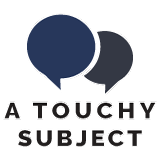Lost arousal post prostate cancer surgery? (Three practical ideas)
This post was inspired by an email I received from a Touchy Subject member…
“I don’t get the sensation of being aroused or turned on since my Prostate Surgery. Is it a physical or mental issue?”
Sex Therapy: Hire a ‘detective’
Some men find their arousal changes after Prostate Surgery. There isn’t one answer to this because many factors influence libido.
These factors can be physical, mental, or due to lifestyle changes. Prostate Surgery can impact any/all of these factors.
This is why a ‘detective’ mindset can be useful in sifting through the factors. Sex therapists/counsellors are trained in this particular ‘detective work’ and can help you come up with strategies for your situation.
So the next logical question is: “where do I find a sex therapist who understands prostate cancer?”
This will depend on where you live, and it is important to check that the therapist you choose has a knowledge of sexual function changes post Prostate Surgery. You could ask your Urologist for a referral, or find your country-specific society for sex therapists/counsellors through Google and check their website for experience and qualifications.
2. Learn some practical arousal ideas.
If therapy feels a bit out of your comfort zone, starting with a book might suit you better.
You and your partner could learn about the latest arousal research together and discuss what feels relevant for you. I recommend a book called 'Come as you are'. The author, Emily Nagoski, is a world renowned researcher on the topic of arousal.
She also provides DIY resources to understand what affects your arousal (see worksheets).
3. Go for a jog!
As simple as it sounds, getting a sweat up often helps raise libido.
Aerobic exercise affects testosterone production (without going too far down this rabbit hole, testosterone is one biological factor believed to contribute to arousal).
Cardiovascular exercise has also been shown to positively impact erection function (watch our past webinar about Exercise and ED with Physiotherapist, Tom Harris).
You could even take up an exercise activity with your partner. One study found couples who exercised together experienced positive effects on sexual factors (for men on hormone therapy) (Lyons, 2016)
These ideas are just a start. As always, the ‘right’ approach will be different for everyone. Please seek advice from your Urologist, GP, Psychologists, and Physiotherapists. Complex experiences like arousal benefit from a multi-disciplinary approach.
